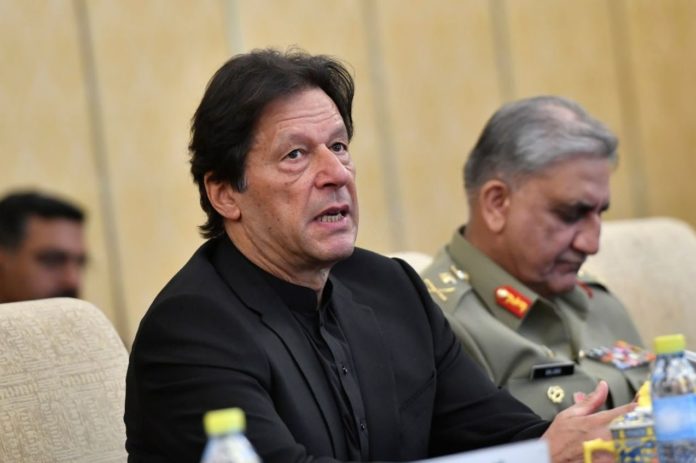In an effort to feed her family in inflation-plagued Pakistan, Maira Tayyab, a housewife has considered begging, while business owner Mohammad Hanif thinks stealing is the only option he has.
Their plight is echoed by millions of Pakistanis, whose discontent threatens Prime Minister Imran Khan’s re-election next year.
“We cannot beg as we are white-collar people,” says Tayyab, 40, from Karachi.
“We don’t know how we make ends meet.”
According to the World Bank, inflation was 10% last year. In a year, the price of cooking oil has climbed by 130%, and the price of fuel has risen by 45% to 145 rupees ($0.82).
Kursheed Sharif, a 50-year-old mother of five, echoes Tayyab’s sentiments as she discusses her family’s situation.
“Only death seems an alternative to survival under this government,” she said, close to tears, outside her unplastered rental shack.
When Khan’s Pakistan Tehreek-e-Insaf (PTI) party surged to power in 2018, he promised to wipe out decades of entrenched corruption and cronyism.
But his failure to deliver is already being felt at the polls, with the PTI being brutally defeated in provincial elections in its stronghold of Khyber Pakhtunkhwa last month.
“The government boasts about its economic feats, but in reality it has lost its ground and credibility,” says Tauseef Ahmed Khan, a rights activist and political commentator.
During the election, Khan said that he wanted to build an Islamic welfare state that would tax businesses and people in a way that was efficient and would help the poor.
Analysts acknowledge he inherited a disaster – and the Covid-19 outbreak hasn’t helped – but his initiatives have done little to improve the situation.
“Nothing is stable,” says Rashid Alam, who works for an international bank in Karachi.
“Increased unemployment, increased inflation … this is the political and economic reality in Pakistan.”
The statistics back him up. Although the economy is expected to increase by 4% in 2022, it has been mostly flat for the past three years.
The rupee has also taken a beating, falling 12% to the dollar since July, despite a US$5 billion trade deficit and forex remittances from a large diaspora increasing by nearly 10% to US$12.9 billion.
This week, Khan maintained that Pakistan’s difficulties, including inflation, were not unique, claiming that the country remains “one of the cheapest countries” in the world.
According to the World Bank, the manufacturing and service sectors are rebounding as lockdowns relax, and higher rains this year will help agriculture.
But the biggest problem for the economy is how to pay off more than $127 billion in debt that the country owes.
Khan successfully secured a US$6 billion International Monetary Fund (IMF) loan package in 2019, but just a third was paid before the tap was turned off due to the government’s failure to implement promised changes, including lowering subsidies on a variety of necessities.
Pakistan has had to deal with some unpleasant things, like raising the prices of petrol and electricity, but it has had to do so.
Ahead of an IMF meeting later this month to decide whether to issue another tranche, the government has rushed through a mini-budget that includes new or increased taxes on a variety of imports, exports, and services, angering millions.
“Can you imagine oil and sugar prices reaching this level?” housewife Sharif laments.
On the verge of default, Islamabad recently sought US$3 billion from China and Saudi Arabia, as well as US$2 billion from the United Arab Emirates.
“All the loans it has been taking now, from whatever sources, are to pay past loans,” says Qaiser Bengali, an independent economist.
“Essentially the economy is bankrupt. Pakistan cannot pay its loans.”
Nonetheless, no one appears to be willing to pay for the services they desire.
Tax evasion is nearly a national sport – fewer than two million individuals paid in 2020, out of a working population 25 times that size – and receipts account for less than 10% of GDP, the lowest in the region.
This type of deception leads Muhammad Hanif, who owns a modest car-battery repair shop, to consider new ways to feed his family.
“[Criminal] thoughts occupy me as to how I must meet ends,” he says.
“But I fear Allah, so I shrug off those thoughts.”
Image Credit: Getty
You were reading: Inflation may destroy Imran Khan’s chance of re-election next year, Report suggests
